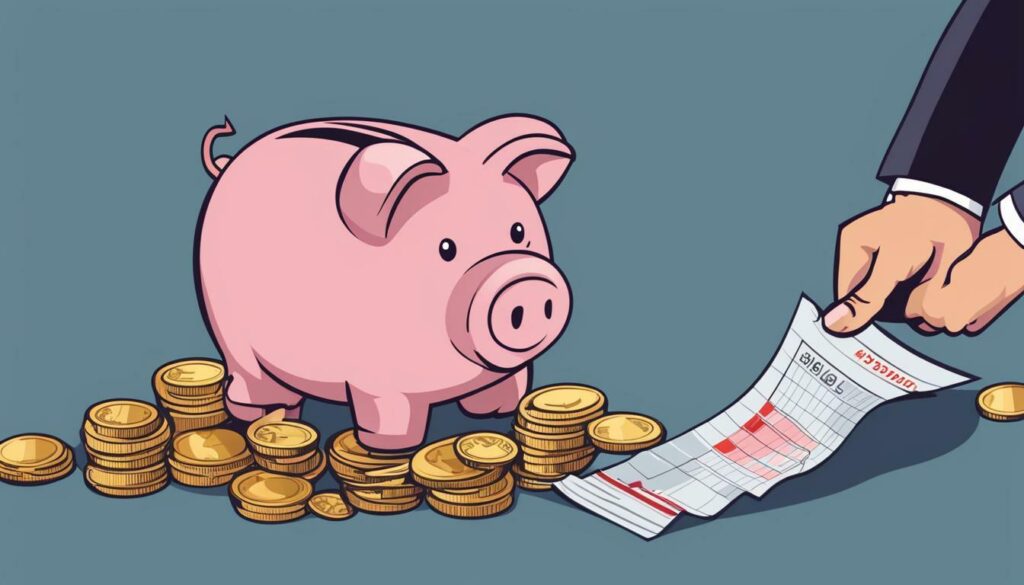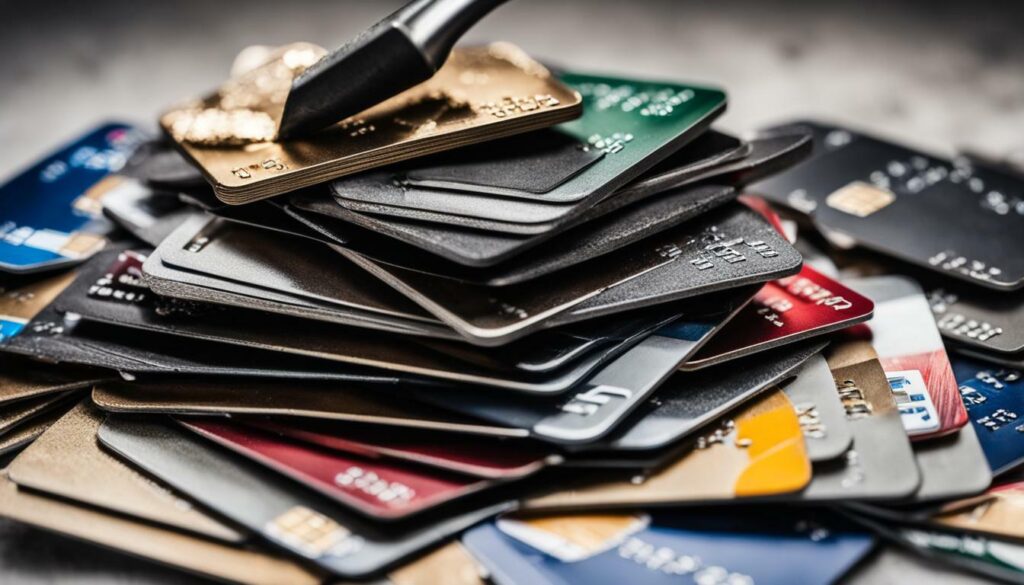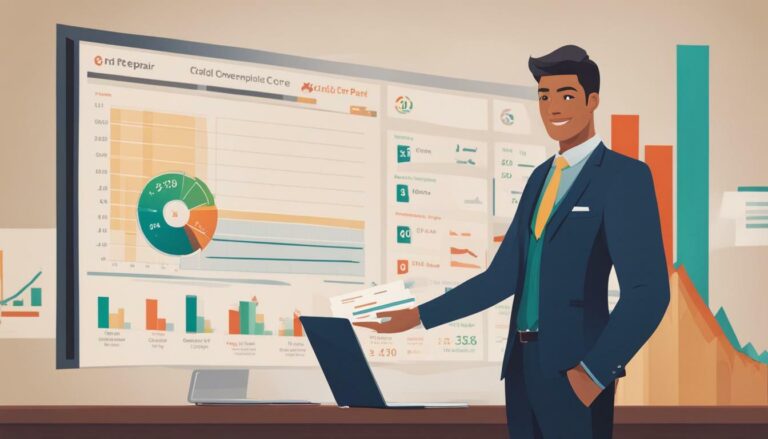Regain Your Financial Footing: Credit Repair after Job Loss

Losing your job can have a significant impact on your financial health, but with the right strategies and a commitment to credit repair, you can regain control of your finances.
Regaining your financial footing after job loss requires creating a plan, remaining patient, and committing to temporary sacrifices. It is important to focus on your essential expenses like food, clothing, and shelter, while also maintaining insurance coverage. Contacting your creditors and exploring financial hardship programs can help you manage your debt. Seeking alternate sources of income, such as unemployment benefits or temporary jobs, can also help bridge the financial gap. Utilizing government programs, turning to your emergency fund, and paying off credit cards are other strategies to consider. Lastly, it is important to be cautious with spending and to avoid taking on additional debt.
- Create a plan and prioritize essential expenses
- Contact creditors and explore financial hardship programs
- Seek alternate sources of income and utilize government programs
- Turn to your emergency fund for support
- Pay off credit cards and be cautious with spending
Creating a Financial Plan to Rebuild Your Credit
To rebuild your credit after job loss, it is crucial to create a comprehensive financial plan that accounts for your essential expenses and addresses your outstanding debts. This plan will serve as a roadmap to guide you towards a healthier financial future. By prioritizing your spending, exploring financial hardship programs, and implementing smart strategies, you can take control of your credit and improve your financial standing.
Prioritize Essential Expenses
When creating your financial plan, it is important to prioritize your essential expenses. These include necessities such as food, clothing, and shelter. By ensuring these needs are met first, you can lay a strong foundation for rebuilding your credit. Take a close look at your monthly expenses and determine where you can make cuts or find more cost-effective alternatives. By making temporary sacrifices and reducing non-essential spending, you can free up funds to put towards paying off debt and improving your financial situation.
🚨 TUIC Errors + Low Credit Score?
CreditScoreIQ helps you build credit faster by reporting utility bills to all 3 bureaus—while you dispute errors.
Start Building Credit Today →Explore Financial Hardship Programs
If you are struggling to meet your debt obligations, it is worth reaching out to your creditors and exploring financial hardship programs. Many lenders offer assistance programs for individuals facing financial difficulties. These programs may include options to lower interest rates, extend repayment terms, or even temporarily suspend or reduce payments. By taking advantage of these programs, you can alleviate some of the financial pressure and work towards rebuilding your credit.
Implement Smart Credit Repair Strategies
In addition to prioritizing expenses and exploring financial hardship programs, there are several credit repair strategies you can implement to improve your credit score. Start by reviewing your credit report and addressing any errors or inaccuracies. Dispute these errors with the credit reporting agencies to have them corrected. Next, focus on paying off your credit cards and other outstanding debts. Consider using your emergency fund or seeking additional sources of income, such as temporary jobs, to accelerate debt repayment. Finally, be cautious with your spending and avoid taking on additional debt. By practicing responsible financial habits, you can rebuild your credit and pave the way for a stronger financial future.
By creating a financial plan that prioritizes essential expenses, exploring financial hardship programs, and implementing smart credit repair strategies, you can take the necessary steps to rebuild your credit after job loss. Remember to remain patient and committed to your plan, as rebuilding credit takes time. With determination and perseverance, you can regain your financial footing and set yourself up for long-term success.

In times of job loss, exploring alternate sources of income and taking advantage of government programs can provide much-needed financial assistance and help repair your credit. Whether you’re seeking temporary employment, applying for unemployment benefits, or looking into government assistance programs, these options can help bridge the financial gap and alleviate some of the stress caused by job loss.
One valuable resource to consider is unemployment benefits. While these benefits may not fully replace your previous income, they can provide a steady stream of income to cover essential expenses. Additionally, temporary jobs or freelance work can help you earn some income while you search for a new job. Remember, every bit counts, and these alternate sources of income can help you stay afloat during this challenging time.
Government programs can also play a significant role in assisting individuals facing financial hardship. Depending on your situation, you may be eligible for programs that provide housing assistance, food stamps, healthcare coverage, or utility bill assistance. These programs exist to support individuals during difficult times, so it’s important to explore the options available to you.
| Program | Eligibility Requirements | Benefits |
|---|---|---|
| Housing Assistance | Low-income individuals or families | Subsidized rent or mortgage assistance |
| Food Stamps | Varies by state | Assistance with purchasing food |
| Healthcare Coverage | Income and household size | Access to affordable healthcare |
| Utility Bill Assistance | Low-income individuals or families | Financial help with utility bills |
Remember, utilizing alternate sources of income and government programs should be part of a comprehensive financial plan. It’s essential to create a budget, prioritize your expenses, and make informed decisions about how to allocate your resources. Additionally, exploring these options can provide a sense of relief and empower you to take control of your finances while you work toward rebuilding your credit.

- Explore alternate sources of income such as unemployment benefits and temporary jobs to bridge the financial gap.
- Take advantage of government programs for housing assistance, food stamps, healthcare coverage, and utility bill assistance.
- Create a comprehensive financial plan that includes budgeting and prioritizing expenses.
- Utilize these resources to regain your financial footing and work towards repairing your credit.
Paying Off Debt and Being Cautious with Spending
Taking proactive steps to pay off debt and being cautious with your spending habits can have a significant impact on your credit repair journey after job loss. It’s important to prioritize paying off your credit cards and reducing your overall debt burden. This can help improve your credit score over time and position you for better financial stability.
One strategy to consider is utilizing your emergency fund to pay off high-interest credit cards or other outstanding debts. By using this fund wisely, you can save on interest charges and make progress towards paying down your debt faster. It’s important, however, to replenish your emergency fund as soon as possible to ensure you have a safety net in place for any unexpected expenses.
Another approach is to be cautious with your spending. Stick to a budget and only purchase essential items during this period. Cut back on non-essential expenses, like dining out or shopping for luxury items. By doing so, you can free up more money to put towards your debt payments. It may require making temporary sacrifices, but remember, this is a temporary situation that will eventually lead to financial recovery.
| Pay Off Strategies | Benefits |
|---|---|
| Focus on high-interest debt first | Reduce overall interest payments |
| Create a debt repayment plan | Stay organized and motivated |
| Consider debt consolidation | Simplify payments and potentially lower interest rates |

In addition to paying off debt, it’s also essential to be cautious with your future spending. Avoid taking on additional debt or accumulating new credit card balances. Make sure to pay your bills on time to avoid late payment fees and negative marks on your credit report. These responsible financial habits will demonstrate to creditors that you are taking steps to regain control of your finances.
Summary
Regaining your financial footing after job loss requires a combination of paying off debt and being cautious with your spending habits. By focusing on paying off credit cards and reducing overall debt, you can improve your credit score and position yourself for better financial stability in the future. Utilizing your emergency fund wisely and sticking to a budget can help you make progress towards your debt repayment goals. Additionally, avoiding new debt and paying bills on time will help rebuild your credit and demonstrate responsible financial behavior.
Conclusion
Rebuilding your credit after job loss may take time and effort, but by following a well-thought-out plan and implementing the strategies discussed, you can regain your financial health and improve your credit score.
To start, it’s crucial to focus on your essential expenses like food, clothing, and shelter, ensuring that you meet your basic needs while also maintaining insurance coverage. Additionally, reaching out to your creditors and exploring financial hardship programs can provide you with options to manage your debt and alleviate some of the financial burden.
Furthermore, it’s important to seek alternate sources of income during this challenging period. Consider applying for unemployment benefits or taking up temporary jobs to bridge the financial gap. Additionally, tapping into government programs and utilizing your emergency fund for support can provide additional assistance during this time of transition.
Finally, paying off credit cards and being cautious with spending are key strategies to implement. By utilizing your emergency fund wisely and avoiding taking on additional debt, you can make progress in paying off existing debts and prevent further financial strain.
While the journey to credit repair and financial stability may be challenging, staying committed to your plan and remaining patient will ultimately lead to positive outcomes. By taking these steps and being proactive in rebuilding your credit, you can regain your financial footing and create a better future for yourself.
FAQ
Q: What steps should I take to regain my financial footing after job loss?
A: To regain your financial footing after job loss, it is important to create a plan, remain patient, and commit to temporary sacrifices. Focus on essential expenses like food, clothing, and shelter, while also maintaining insurance coverage. Contact your creditors and explore financial hardship programs to manage your debt. Seek alternate sources of income, such as unemployment benefits or temporary jobs, to bridge the financial gap. Utilize government programs, turn to your emergency fund, and pay off credit cards to regain stability. Be cautious with spending and avoid taking on additional debt.
Q: How can I rebuild my credit after job loss?
A: To rebuild your credit after job loss, create a financial plan that prioritizes essential expenses and maintains insurance coverage. Contact your creditors to discuss your situation and explore financial hardship programs. Seek alternate sources of income, such as unemployment benefits or temporary jobs. Utilize government programs and turn to your emergency fund for support. Pay off debt, particularly credit cards, and be cautious with spending to rebuild your credit.
Q: What are some alternate sources of income and government programs that can help?
A: Alternate sources of income after job loss include unemployment benefits and temporary jobs. Government programs, such as assistance for housing or healthcare, can also provide support. Additionally, turning to your emergency fund or utilizing government assistance programs can help bridge the financial gap and provide necessary resources during this time.
Q: How can I pay off debt and be cautious with spending?
A: To pay off debt, consider utilizing your emergency fund or seeking assistance from government programs. Pay off credit cards and avoid taking on additional debt. Be cautious with spending by prioritizing essential expenses and cutting back on non-essential items. Creating and sticking to a budget can help you manage your finances more effectively.
Ready to Improve Your Credit?
Disputing TUIC errors is step one. Step two? Boost your score by reporting utility payments with CreditScoreIQ.
Get Started Now (Only $1 Trial) →3-bureau reporting • $1M identity insurance • Dark web monitoring



